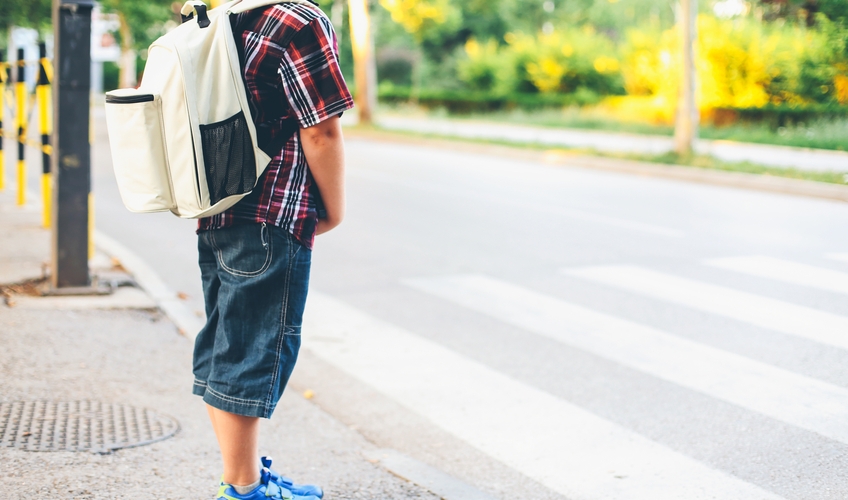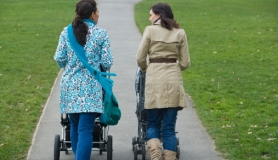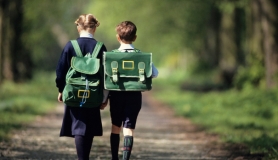But the Spanish city of Pontevedra has decided to advocate giving children their space.
Launched in 2010, the “Road to School” programme has been taken up by seven establishments in the northwestern city which believe that far from being in danger, children as young as six actually thrive going to school without adults, developing strong self-confidence. This initiative in part came about because of research by Italian educational psychologist Francesco Tonucci, who believes in giving kids autonomy.
According to city statistics, 25 percent of students aged six to 12 walked to school alone last year.
Tonucci, now 76, has long advocated letting children develop without excessive amounts of adult interference as part of Italy’s National Research Council.
“When I was a kid, we played in the streets, where we would discover the world,” he tells AFP in Pontevedra, an 83,000-strong city in Galicia.
“Now, we have to rebuild this normality.”
His ideas have inspired some 20 cities in Spain, as well as schools in Italy, Latin America, Turkey and Lebanon.
Adamantly against “computer games made to keep children at home for a long time,” Tonucci tells parents to let them out and “invent their own games”.
“It feels like a form of abandon but it’s a way of loving them: I leave you alone because I trust you.”
He believes that “the presence of an adult deprives children of surprise, of discovering things on their own, of risk-taking, which is an essential part of playing.”
Pilar Lores, principal at one of the schools that has adopted his ideas, says the act of letting children walk alone builds their self-confidence.
“They have to look after one another, they also arrive more awake, fresher, and hyperactive or fidgety children are calmer because they have released their adrenalin,” she says.
This initiative has also had the effect of reducing car traffic and creating more pedestrian and cycling areas and earned Pontevedra a UN Habitat prize in 2015, which aims to reward individuals or institutions for improving living conditions in urban centres.
Read the full story at France24.






